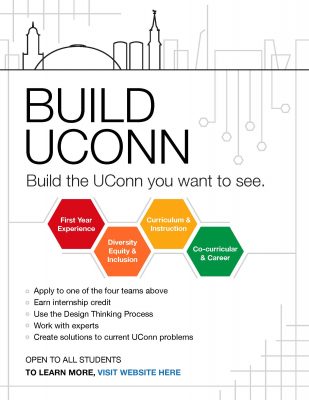It may sound cliché, but building a business really is a journey in which you take small steps every day down a road to reach your destination. For many years I was wandering, and while not all those who wander are lost (as I was still creating content and building my network), I was not sure if I was heading down the right path. In retrospect, when I did finally make decisions regarding my career path it was not opportunities that I sought out, but rather the people presenting them that approached me. I did, however, seize those opportunities and made the most of them. But there was always something incomplete that left me wondering if this was “it”; did I really want to continue in whatever role I was in for the rest of my professional life?
It has been over a decade since my return to the tri-state area from Israel after completing my army service, and before that an undergrad degree from a reputable academic institution in Boston. I cannot say that New York is a great place for an entrepreneur, but it is a place where perfect people who get perfect grades look to level up to their next corporate position. However, there is an energy to the city, and there are opportunities for those who want to seize them. In reflection, I have always been an entrepreneurial type of personality, and some environments are conducive to that while others are not. I cannot say I will remain on the path of running a content marketing agency for the rest of my life, or that it is the summation of my work experience. But there are valuable lessons I have learned that I believe are relevant for those looking to start their own business, whether that be an agency, small business, or startup.
Every task can be broken down
Initially I feel as overwhelmed as anyone else but feeling this way is not going to get me the results I want when I start a project. The most important thing is to write all of it down so that you get it out of your head, and just focus ferociously on the task in front of you. “Focus like a Roman” as the saying goes...for example: if I were going to answer email, I would allocate 52 minutes to it and put on my noise-canceling headphones with focus music. Then I would lock my email so that no incoming mail comes in, and of course, all other notifications would be shut off, and I would complete as much as I could in that time frame.
I am a disciple of “winning the day”, and if you just concentrate on the day ahead, I believe you will be able to move your business forward. I can say that I would need some assistance with a 6-month plus plan, but some lifestyle entrepreneurs such as Tim Ferriss might claim I am missing out on the razor’s edge of opportunity by being too rigid. I would also add that all bets are off during this period as we really do not know where things are headed with the pandemic. That is why just looking at winning every day (completing 3-5 major tasks) is so important and focusing on optimizing the experience.
Consistency above all
This may sound like heresy, but I believe being consistent with content is more important than it initially being ‘good’. This is a hard pill for some to swallow, but you only get good by doing. And the reason most people fail is that they do not actually try. They wait for the perfect post, the perfect article, and they just sit on it. As Sheryl Sandberg famously stated, “shipped is better than done”, or going back to Voltaire, “perfect is the enemy of the good”. The uncomfortable truth is that you are not as good as you think you are. I certainly was not, and I had to produce a lot of content and take feedback to get to where I am today.
You can probably beat most of your competitors simply by showing up every day. Many people get intimidated knowing that their competitors are going to keep showing up and creating content, come hell or high water. That is why consistency, discipline and the resilience associated with these qualities are so important. I have seen this in my own work: I keep showing up, pushing hard, and producing more content while under lockdown. Meanwhile, I see others in my space spending time feeling sorry for themselves and complaining on Instagram, all while generating bad content.
Guard your focus time
I do not think I am a lazy person, but I do not have a lot of willpower, so that is why I set up systems to make sure I win. You only have so many hours of your day to move along what you want to work on. One email or text from a client can send you on a wild goose chase and before you know it, the day is over. For those gurus who just tell you to sit and do it, it is not that easy, and even for the most committed, you need a daily system.
Personally, getting up early, not checking my phone (this is essential), and getting my 1 or 2 most important tasks done first thing in the morning kick-starts my day. That, planning the most important tasks I want to complete, and spending some time thinking and visualizing the night before. This is where the importance of breaking tasks down into their smallest bits are important so that you do not get overwhelmed. If you cannot focus, then you probably will not be able to accomplish that much.
Find a reliable way to make decisions
One of my pet peeves, and what seems to be the one reason many businesses fail is poor decision making. We are irrational creatures, and as countless studies show we make emotional decisions first, then look to justify those choices with “logic”. If you think you are immune to this type of behavior, you are mistaken. Do I think I am more emotional than other people? Perhaps, but my emotions certainly come on strong, and I have learned to create distance between my feelings and actions before deciding.
As the famous Viktor Frankl quote goes “between stimulus and response there is a space. In that space is our power to choose our response. In our response lies our growth and our freedom.” The reality is that you are going to be assaulted by exceedingly difficult emotions when you launch your own business, especially when things go awry, and they will. That is why my daily workout regimen (with plenty of sleep and healthy eating), journaling my thoughts in the morning, and meditation to give my emotions space all help me make clear-headed decisions. I am not saying I always make the right decision, but I feel going into the decision that it is the right one given the information I have.
Persuasion is key, and it is not just about “sales”
What separates those entrepreneurs who can get an endeavor off the ground or raise venture money from others is that they can persuade. When investors state that they love passionate entrepreneurs, it is because they are taken by the entrepreneur’s persuasive energy. That does not mean you need to be a natural-born salesperson. I certainly was not, and I do not think you will be taken as seriously if you are too ‘salesy’, but you need to know how to persuade.
Here are where things get interesting. You can be a persuasive relationship developer (what I focused on when I started), a convincing public speaker, or a good writer. But you need to be good one-on-one, build trust, and be likable, which are things you can learn. Having a skill, product, and service is important but you need to learn how to persuade to have a business. For those who think sales is slimy, it does not need to be. You need to get that out of your lexicon and learn some form of persuasion. Sales ability, in my opinion, is the hardest and purest skill as the results can be measured, but it is a lifelong journey.
Those are my humble views and what I have learned. And in 5 years’ time I will make more mistakes and learn different things, and who knows, maybe I will reverse some of these views. I chose this path, and while I was scared when I started, I wish I had embarked on this journey earlier in life. But it could be worse, I could have started this later in life, and not self-actualized now nor leaned into my truest self. This is my personal journey, and if you have any questions, I would be happy to offer my advice.
Jonathan “Yoni” Frenkel has been involved in the New York-Israeli tech community for many years, mentoring startups on marketing, hosting events connecting investors with startups, and publishing on the topics of tech and venture regularly. Professionally, he heads a content marketing agency, YKC Media, focused on engaging millennials, Gen Z, and tech professionals through written content and social. You can follow his thoughts on Linkedin here.



